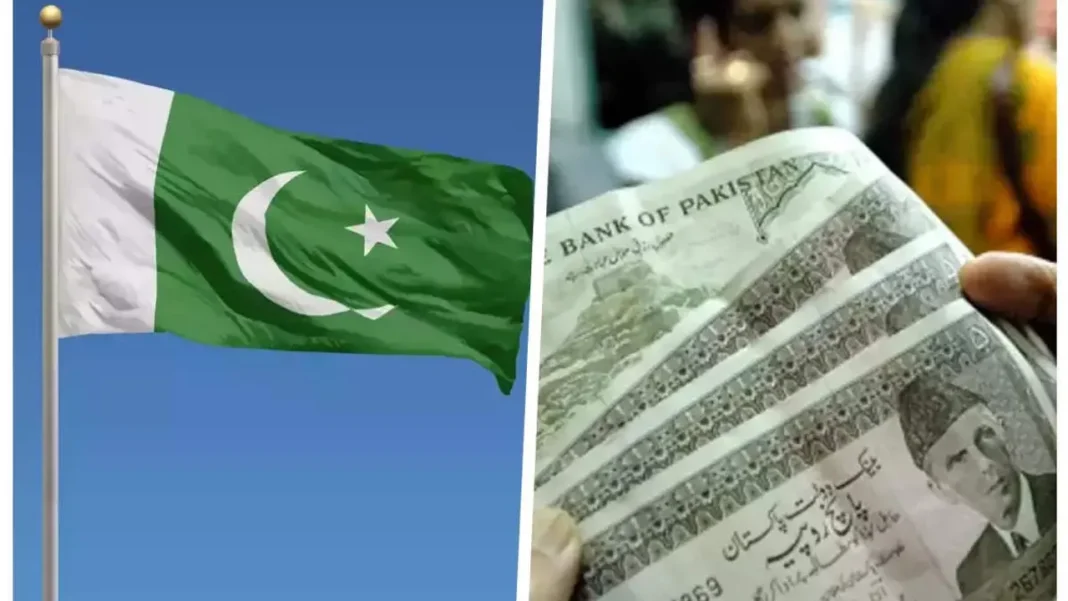The Fitch Ratings agency on Tuesday downgraded Pakistan’s long-term foreign-currency issuer default rating (IDR) to ‘CCC-’, from ‘CCC+’ due to worsening liquidity, political volatility and decline of foreign-exchange reserves to critically low levels.
A CCC minus rating denotes a very high level of default risk.
One of the three major global rating agencies, Fitch said it did not typically assign outlooks to sovereigns with a rating of ‘CCC+’ or below.
On Oct 21, 2022, Moody’s — another global rating agency — downgraded Pakistan’s IDR to CCC- from B-, reflecting a steady deterioration since the start of the current fiscal year.
In a note defining its action, Fitch explained that the downgrading reflects further sharp deterioration in external liquidity and funding conditions and the decline of foreign exchange reserves to critically low levels.
It said that shortfalls in revenue collection, energy subsidies and policies inconsistent with a market-determined exchange rate have held up the 9th review of Pakistan’s IMF programme, which was originally due in Nov 2022.
“While we assume a successful conclusion of the 9th review of Pakistan’s IMF programme, the downgrade also reflects large risks to continued programme performance and funding, including in the run-up to this year’s elections,” the agency wrote.
“Default or debt restructuring is an increasingly real possibility, in our view,” it noted.
Reviewing ‘difficult IMF conditions’ for concluding a deal with Pakistan, the agency noted that shortfalls in revenue collection, energy subsidies and policies inconsistent with a market-determined exchange rate had held up the 9th review of Pakistan’s IMF programme, which was originally due in November 2022.
According to the report, “the IMF’s conditions are likely to prove socially and politically difficult amid a sharp economic slowdown, high inflation, and the devastation wrought by widespread floods last year.”
It noted that elections were due by October 2023, and former prime minister Imran Khan, whose party will challenge the incumbent government in the elections, earlier rejected an invitation by Prime Minister Shehbhaz Sharif to hold talks on national issues, including IMF negotiations.
The report pointed out that funding from bilateral donors was also contingent on IMF programme, adding that “recent funding stress has been marked by the apparent reluctance of traditional allies — China, Saudi Arabia and the United Arab Emirates — to provide fresh assistance in the absence of an IMF programme, which is also critical for other multilateral and bilateral funding.”
The report, however, noted that Pakistani authorities appeared close to agreement on the 9th programme review after the conclusion of the IMF’s staff visit to Pakistan on Feb 9, and had already taken action that should facilitate agreement. “This includes an apparent removal of a cap on the rupee exchange rate in January. The prime minister has repeatedly expressed the intention to remain in the programme.”
One piece of good news from the agency is a forecast of a modest recovery during the remainder of FY23 due to anticipated inflows and the recent removal of the exchange rate cap. “However, we expect reserves to remain at low levels,” the report said.
Pakistan’s external debt maturities in the second half (January-June) of FY23 is over $7bn. This requires financing for payments or rollover from the lenders to minimise risks.
Of the $7bn, $3bn represent deposits from China (SAFE) that are likely to be rolled over, and $1.7bn are loans from Chinese commercial banks which we also assume will be refinanced soon. The SAFE deposits are scheduled to mature in two instalments — $2bn in March and $1bn in June.
Pakistan’s CAD was $3.7bn in 1HFY23, down from $9bn in 1HFY22. “We forecast a full-year deficit of $4.7bn or 1.5pc of GDP in FY23 after $17bn or 4.6pc of GDP in FY22. The narrowing of the CAD has been driven by restrictions on imports and foreign exchange availability, as well as by fiscal tightening, higher interest rates and measures to limit energy consumption.
Fitch said remittance inflows could also recover after they were partly switched to unofficial channels in 4Q22 to benefit from more favourable exchange rates in the parallel market.

